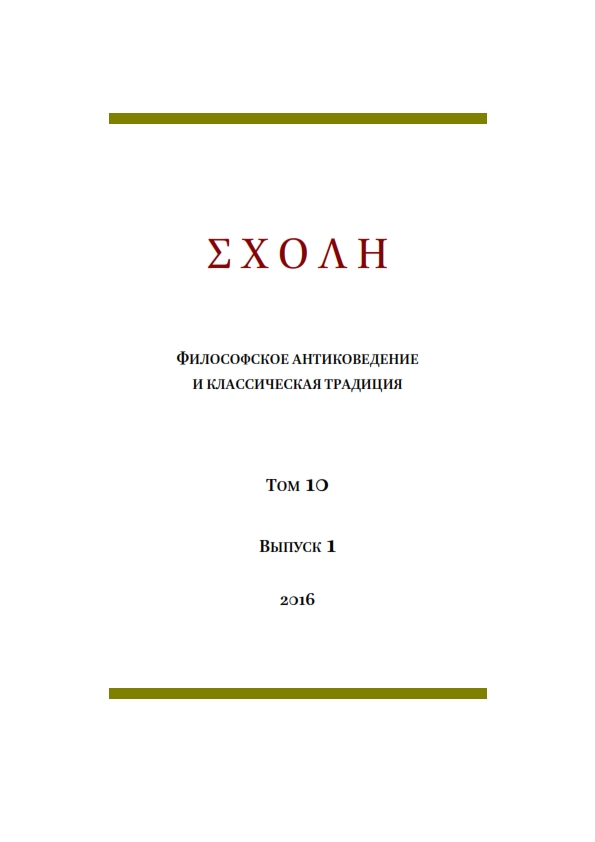АРИАНСКИЕ СПОРЫ ВТОРОЙ ПОЛОВИНЫ IV В.: НАЧАЛО ПОЛЕМИКИ ОБ УНИВЕРСАЛИЯХ В ВИЗАНТИЙСКОЙ БОГОСЛОВСКО-ФИЛОСОФСКОЙ МЫСЛИ И ЕГО КОНТЕКСТ ЧАСТЬ ВТОРАЯ: ИСТОРИКО-ФИЛОСОФСКИЙ КОНТЕКСТ
THE ARIAN CONTROVERSY OF THE SECOND HALF OF THE FOURTH CENTURY: THE BEGINNING OF THE DEBATE ON THE UNIVERSALS IN BYZANTINE THEOLOGICAL AND PHILOSOPHICAL THOUGHT, AND ITS CONTEXT. PART II. HISTORICAL AND PHILOSOPHICAL CONTEXT
Author(s): Dmitry BiryukovSubject(s): Logic, Ancient Philosphy, Philosophy of Middle Ages, Philosophy of Religion, Eastern Orthodoxy
Published by: Новосибирский государственный университет
Keywords: universals; patristic philosophy; Neoplatonism; hierarchy of natural beings; the categories; genera-species dividing; the tree of Porphyry;
Summary/Abstract: The article reconstructs philosophical context of polemics on the status of commonness in the Arian controversy. I suggest that this doctrine of Eunomius according to which the higher we go up the hierarchy of beings, the lesser the horizontal commonness in the nature of individual beings we see, may have been closely related to the Middle- and Neoplatonic interpretation of Aristotle’s Categories which implied that categories and especially the category of the second substance (corresponding to species and genera) could be applied only to the corporeal realm. Keeping it in mind, I demonstrate connection between the argumentation of Eunomius and the philosophical teaching of Iamblichus. I point out the opposite accounts on status of the universal between Eunomius and Gregory of Nyssa, who created treatise “Against Eunomius” refuting Eunomius’s “Apology for Apology”. Two strategies of the hierarchy of beings can be identified in Gregory’s “Against Eunomius”. I think that each of them is connected with the Tree of Porphyry. One of these strategies is opposite to the doctrine of Eunomius, since for Gregory the most common is placed at the summit of the hierarchy, and measure of commonness decreases when we go down the hierarchy. I suggest that it was a specific doctrine of Eunomius on the universal which triggered a philosophical reaction manifested in the doctrine of Gregory of Nyssa on the hierarchy of beings.
Journal: ΣΧΟΛΗ. Философское антиковедение и классическая традиция
- Issue Year: X/2016
- Issue No: 1
- Page Range: 121-131
- Page Count: 11
- Language: Russian

